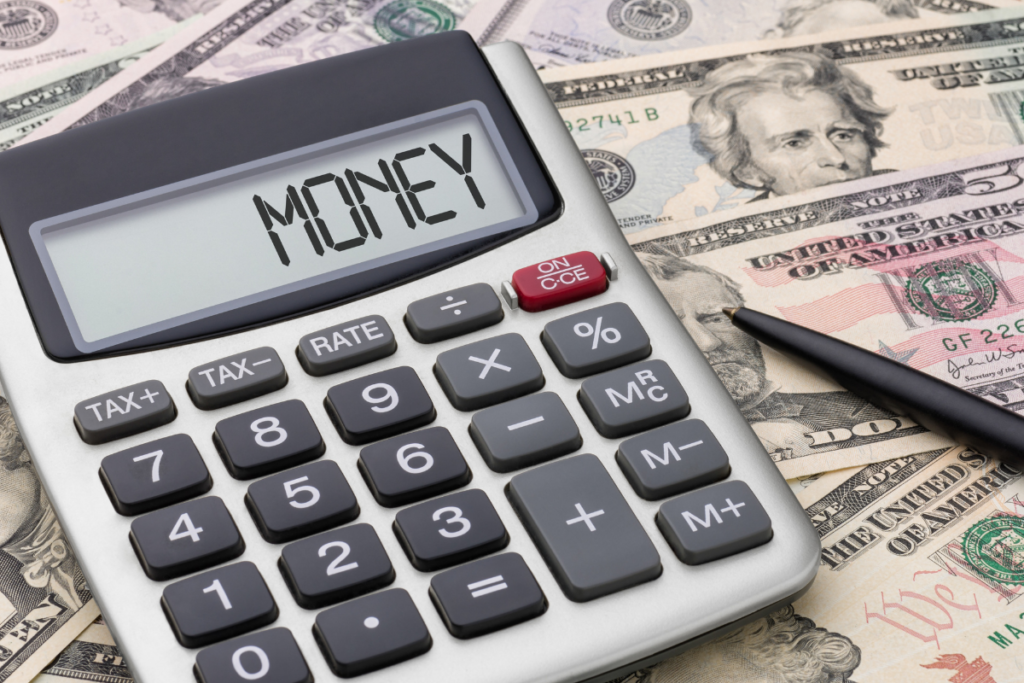Filing for bankruptcy is a big decision that should not be taken lightly. However, if you have incurred more debt than you can afford to repay, filing bankruptcy may be your only recourse.
Keep reading to learn eight reasons why filing bankruptcy may be your best option.
8 Reasons to File Bankruptcy
#1 – You are charging everyday expenses onto your credit cards.
Repeatedly using your credit card to pay for things like groceries and gasoline because you don’t have enough available cash is a strong indicator of financial trouble. This is often done when people spend their whole paychecks on debt payments.
This is a vicious cycle that only contributes to your debt even further. When you spend $50 on your minimum payment, but you also need $50 in groceries, the only viable choice is to charge it to the credit card. Your total debt increases from this transaction due to interest charges.
#2 – You’re making a credit card payment using another credit card.
If you’re paying for one credit card through the use of a cash advance or transferring the balance to a different credit card, you’re not actually paying down your debt. This is simply a stalling scheme.
You don’t have to be too concerned if you’ve only done this once, but if you do this repeatedly, it can easily cause your debt to exponentially increase.
#3 – Your interest rates have increased as a result of missed payments.
Even when interest rates are reasonable, digging yourself out of debt is a hefty challenge. If you miss a payment or two, it’s common for lenders to increase your interest rate to 30% or higher. At an interest rate at that level, the majority of your monthly payments will go toward interest, with a small portion of your payment applied to the principal.
Your monthly payment will also increase when your interest rate goes up, which can make it even more difficult to clear the debt. If you have high-interest rates and debt that you cannot pay off, you may want to try to negotiate a lower interest rate with the lender. If they are unwilling to reduce your interest rate, bankruptcy may be a good option.
#4 – You’ve already taken a second or third job.
Many people are able to clear their debts with income from a second or third job, but not everyone is able to do this.
If the additional income helps you pay your monthly expenses, that’s a great place to start. However, if you’re unable to chip away at your debt with the income from an extra 10 hours of work per week, then it may be necessary to consider filing bankruptcy.
#5 – Your wages will be garnished.
This is uncommon for most debtors because wage garnishment is saved for some of the most extreme cases. When your wages are garnished, it means that the lender has made an arrangement with your bank or employer in order to seize funds directly from your paycheck.
Your wages may only be garnished if you earn at least 40 times the minimum wage every week. This is equal to working full-time at minimum wage. However, since minimum wages are so low, most people end up with even greater financial troubles once wage garnishment begins. This subsequently tends to increase the debt with other lenders.
If you’ve received a notice that a lender is trying to garnish your wages, declaring bankruptcy will stop this order from progressing, even if just temporarily. By doing this, you may also be able to have the debt relieved.
#6 – Your work and personal life are impacted by your debt-related stress.
If you are so stressed about your debt that you can’t focus at work, that is a major issue. If you lose your job, you certainly won’t be able to chip away at your debt. If your debt issues are so substantial that they interfere with your life to a high degree, you may want to file bankruptcy.
#7 – You’re thinking about using your retirement savings to pay off your debt (or you’ve already done so).
It’s unwise to take money from your retirement to pay off debts. For one, you are hurting your future self. For another, taking money from your retirement may create a tax expense that you’re unable to pay.
Many retirement accounts are safe from bankruptcy, so it’s a good idea to avoid removing money from your retirement accounts if you’re thinking about declaring bankruptcy.
#8 – You’ve tried other options, but nothing helped.
If you’ve tried several avenues for clearing your debt and nothing has worked, you may want to declare bankruptcy.
We’re Here to Help
If you need help deciding whether bankruptcy is right for you, our attorneys can help. We have helped thousands of other people with their financial problems and we may be able to help you, too. Don’t hesitate to contact our office right away with any questions you may have.
Call The Gil Law Firm today at (334) 401-4420 to discuss the details of your case.
